The Curly Charm of Rex Guinea Pig: An In-Depth Guide For Your Piggie
Today we're going to show you the ins and outs of rex guinea pigs - these fuzzy friends are sure to charm your heart with their unique curls!
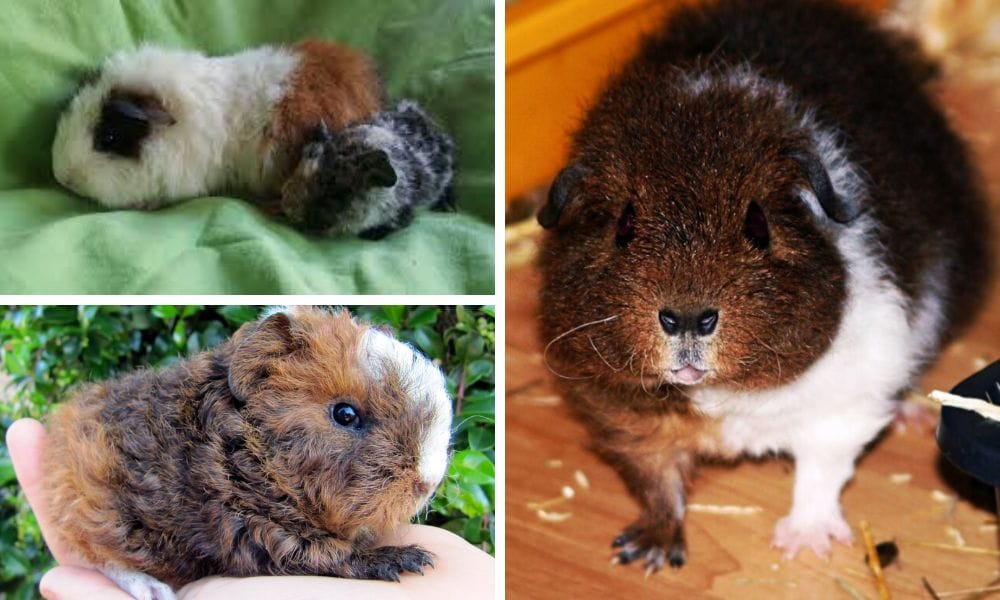
Key Takeaways:
- Rex guinea pigs are a unique breed with a distinctive curly coat that sets them apart from other guinea pig breeds.
- Proper care for a rex guinea pig includes a specific diet, grooming needs, and habitat considerations to keep them healthy and happy.
- Understanding the characteristics and needs of rex guinea pigs can help potential owners determine if this breed is the right fit for their home.
Guinea pigs have been beloved pets for generations, and among the various breeds, the rex guinea pig stands out with its unique appearance and endearing personality. If you're considering adding a rex guinea pig to your family or just curious about this fascinating breed, you're in for a treat. This comprehensive guide will walk you through everything you need to know about rex guinea pigs, from their origins to their care requirements.
What is a Rex Guinea Pig?
The rex guinea pig breed is known for its distinctive, curly fur, which gives it a plush, teddy bear-like appearance. The Rex guinea pig breed is one that is pretty common, and can be identified by its short and wavy coat. Unlike other breeds, the rex's coat lacks guard hairs, resulting in a much softer coat that feels coarse to the touch. This genetic mutation not only affects their fur but also gives them curly whiskers, adding to their unique charm. The Rex has a broad head and large droopy ears.
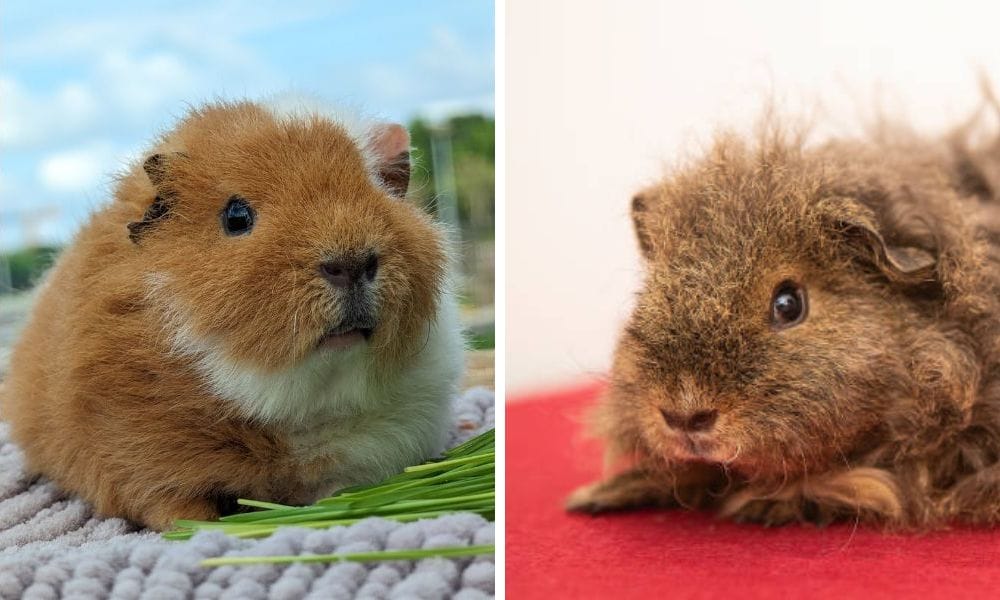
The Origin of Rex Guinea Pigs
Tracing back to South America, guinea pigs, or cavies, have been domesticated for thousands of years. However, the rex guinea pig breed is a relatively recent addition to the guinea pig family. Originally bred for their meat, rex guinea pigs were later recognized for their unique coat and became popular as pets. Rex guinea pig breeds like other piggies originate from South America and their curly coat is the result of a genetic mutation, similar to that found in the Cornish Rex and Devon Rex cat breeds.
The Recessive Trait of Rex Guinea Pigs
The rex guinea pig breed owes its unique appearance to a fascinating genetic twist. The curly coat that sets rex guinea pigs apart from other guinea pig breeds is the result of a recessive trait. This means that for a guinea pig to sport the distinctive curly fur, it must inherit two copies of the recessive allele—one from each parent. If a guinea pig inherits only one copy of this allele, it won’t display the curly coat characteristic of the rex guinea pig breed. This genetic quirk is what gives rex guinea pigs their charming and unique look, making them a standout among other guinea pig breeds.
The Development of the Curly Coat
The curly coat of rex guinea pigs is more than just a visual delight; it’s a result of a specific genetic mutation. This mutation affects the structure of their hair follicles, causing the hair to grow in a curved or wavy pattern. This gives the rex guinea pig its characteristic plush and woolly appearance. While their curly coat is generally low-maintenance compared to long-haired guinea pig breeds, it does require regular grooming to prevent matting and tangling. A gentle brush with a soft-bristled brush will help keep their coat in top condition, ensuring your rex guinea pig looks and feels its best.
Rex Guinea Pig Diet
As with rabbits, a guinea pig diet should consist of mainly high quality feeding hay, veggies and vitamins. A rex guinea pig's diet should be rich in fiber and include a continuous supply of fresh hay. Fresh vegetables are also essential, providing necessary vitamins and minerals, particularly vitamin C, which guinea pigs cannot produce on their own. A balanced diet helps prevent health problems such as dental issues and urinary problems.

Fruits and Treats for Guinea Pigs
While the primary diet of guinea pigs should consist of hay, pellets, and fresh vegetables, adding fruits and treats can be a delightful way to supplement their nutrition. Some safe and healthy options for guinea pigs include:
- Fresh berries like strawberries, blueberries, and raspberries
- Sliced apples and bananas
- Carrot and sweet potato sticks
- Small amounts of hay-based treats
Remember, moderation is key. Fruits and treats are high in sugar and calories, so they should only be given occasionally. A balanced diet rich in hay, fresh vegetables, and quality pellets remains the cornerstone of a healthy guinea pig diet.
Grooming Your Rex Guinea Pig
Grooming a rex guinea pig is slightly different from grooming other breeds due to their curly coat. Using a soft-bristled brush, brush gently to avoid damaging their skin. Regular grooming not only keeps their coat in good condition but also provides an opportunity to bond with your pet and check for any signs of health problems, such as respiratory infections. Additionally, most guinea pigs, including rex guinea pigs, have very thick claws that grow faster than normal and require trimming about once a month. It’s a good idea to get special clippers from a pet store to be able to keep them short.
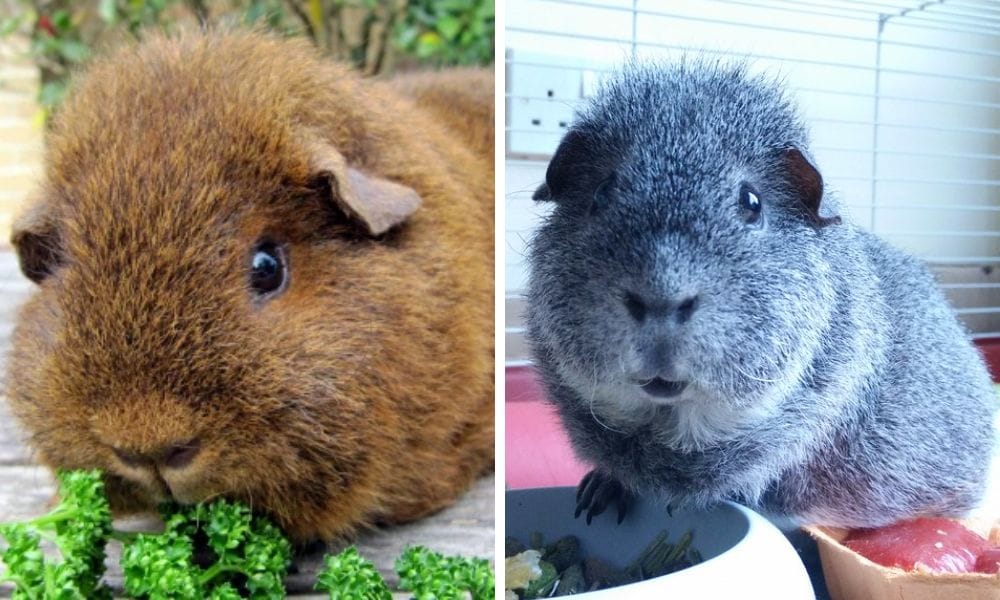
Ear Cleaning and Nail Trimming
Maintaining your guinea pig’s hygiene is crucial for their overall health. Regular ear cleaning and nail trimming are essential parts of their grooming routine. Here are some tips to help you:
- Use a cotton swab and a guinea pig-safe ear cleaner to gently clean the outer ear canal. Avoid inserting the swab too deeply to prevent damage.
- Trim your guinea pig’s nails regularly to prevent overgrowth. Use nail clippers designed for small animals and be cautious not to cut the quick, which can cause pain and bleeding.
By keeping up with these grooming tasks, you ensure your guinea pig stays comfortable and healthy.
Housing Your Rex Guinea Pig
When it comes to housing, rex guinea pig require a larger enclosure than some other breeds due to their active nature. The cage size should allow for regular exercise and enrichment activities. Ensure the enclosure is safe from colder temperatures and provides a comfortable environment with plenty of space to explore.
Hutch Hygiene and Maintenance Tips
A clean and well-maintained hutch is vital for your guinea pig’s health and happiness. Here are some tips to keep their living space in top condition:
- Clean the hutch regularly by removing soiled bedding and replacing it with fresh material.
- Disinfect food and water dishes daily, and change the water bottle regularly to ensure your guinea pig has access to clean water.
- Provide plenty of hiding places and toys to keep your guinea pig stimulated and engaged.
- Use a guinea pig-safe cleaning product to keep the hutch free of bacteria and other harmful pathogens.
By following these tips, you can create a safe and comfortable environment for your guinea pig to thrive in.
By integrating these new sections, the article now provides a more comprehensive guide to caring for rex guinea pigs, covering their unique traits, grooming needs, dietary supplements, and overall hygiene. This ensures that readers have all the information they need to keep their curly-coated companions happy and healthy.
Comparing Rex Guinea Pigs with Teddy Guinea Pigs
When it comes to the adorable world of guinea pigs, Rexes and Teddies often steal the show. Rex guinea pigs are known for their unique, coarse coat that gives them a plush, hedgehog-like appearance. Their fur stands up in a delightful array of spikes, unlike the teddy guinea pig breed, which boasts a softer, dense coat that resembles a cuddly teddy bear. Both breeds have forward growing hair, but the Rex’s coat is rougher to the touch, while the Teddy’s is velvety, making them both irresistible to pet lovers.
Teddy guinea pig, while similar in size to their Rex counterpart, has a different grooming requirement. They benefit from regular brushing with a soft-bristled brush to keep their fur in tip-top shape. Rex guinea pig, on the other hand, have a more low-maintenance coat that doesn’t mat easily. However, both breeds require their nails to be trimmed regularly to prevent overgrowth and discomfort. It’s important to use a dedicated guinea pig’s nails clipper, which can be found at most pet stores, to ensure a safe and comfortable trim.
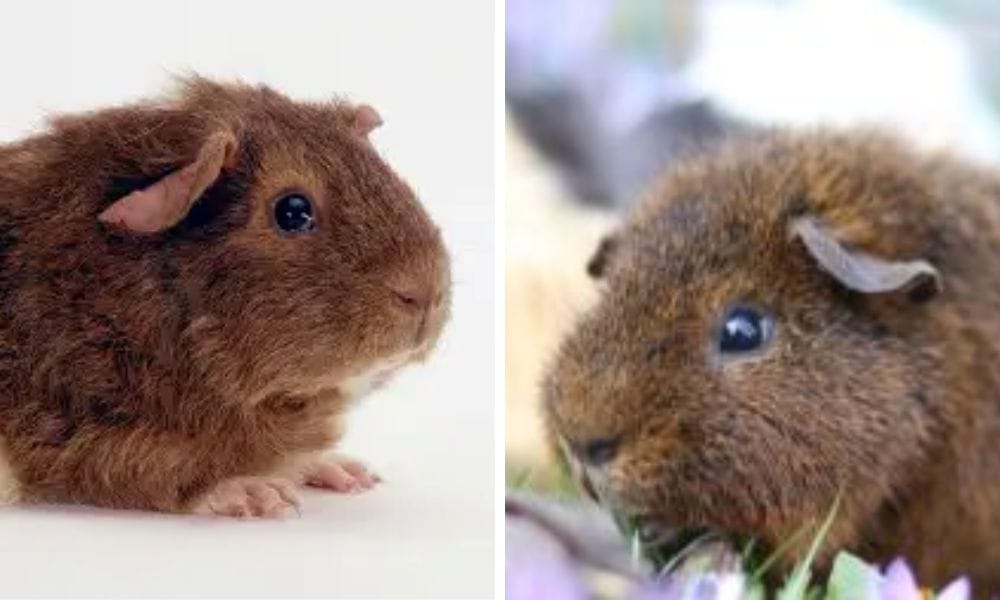
The Unique Grooming Needs of Rex Guinea Pigs
Rex guinea pigs are known for their distinctive, plush coats that set them apart from their short-haired cousins. Unlike the teddy guinea pig, which has a dense and fluffy coat, the rex’s coat is characterized by soft, woolly fur that requires special attention. To maintain the health and appearance of their coat, it’s recommended to use a soft-bristled brush. This not only helps to remove any loose hair or debris but also stimulates the skin and helps distribute natural oils throughout their fur. Regular grooming sessions are a bonding experience for you and your pet, and they provide the opportunity to check for any skin issues or parasites that could be lurking beneath their curly locks.
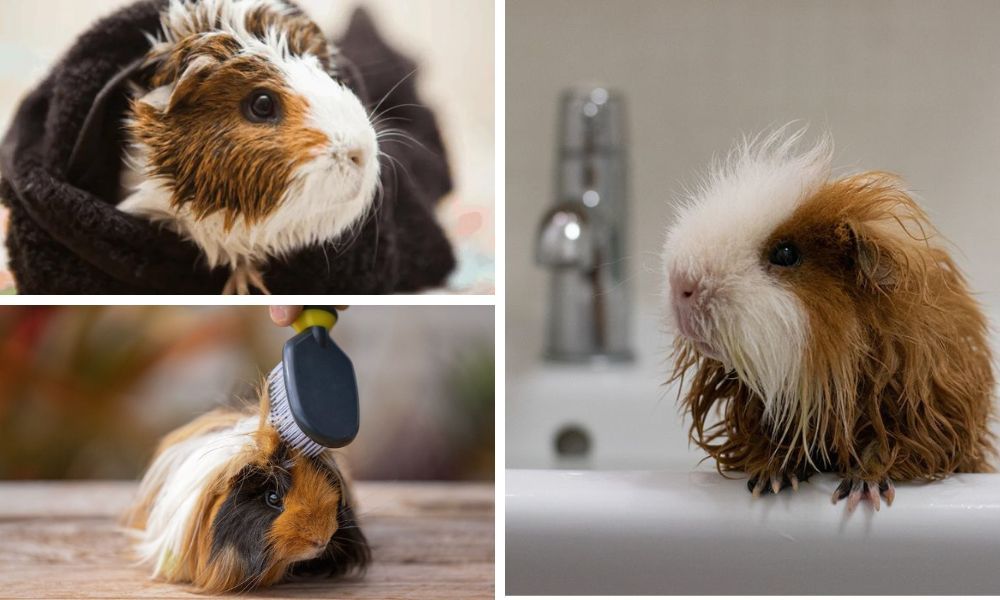
When it comes to nail care, guinea pig’s nails can grow quite long if not regularly trimmed, which can lead to discomfort and mobility issues. A rex guinea pig's nails should be checked and trimmed approximately once a month to prevent overgrowth and curling. Younger guinea pigs tend to have faster nail growth, so regular trimming is crucial. It’s important to use a small animal nail clipper and to be cautious not to cut into the quick, which can cause bleeding and pain. If you’re unsure about trimming your guinea pig’s nails yourself, many pet stores offer grooming services, or you can consult with a veterinarian. Remember, keeping your rex guinea pig well-groomed is essential for their overall well-being.
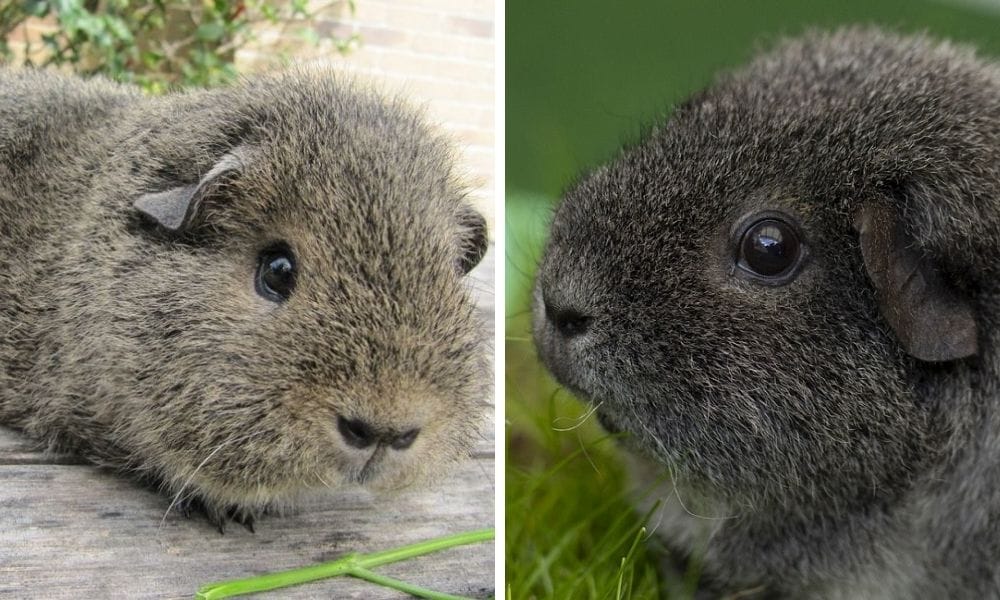
Rex Guinea Pigs: The Perfect Pet for Families?
When considering a new pet for the family, the rex guinea pig often comes up as a top choice due to their amiable nature and hedgehog-like appearance. Like most breeds, they are easy to take care of, and make great pets. These cuddly creatures are known for being good pets, especially for families with children.
The Size Spectrum: Rex Guinea Pigs and the Largest Guinea Pig Breeds
Rex guinea pigs are not the largest guinea pig breeds, but they certainly stand out with their distinctive look. The largest breeds, such as the Cavy or the Patagonian, can dwarf the Rex with their impressive size. However, the Rex holds its own with a robust and rounded body that is both strong and agile. Their size is perfect for those who want a substantial pet without the space requirements of the largest breeds.
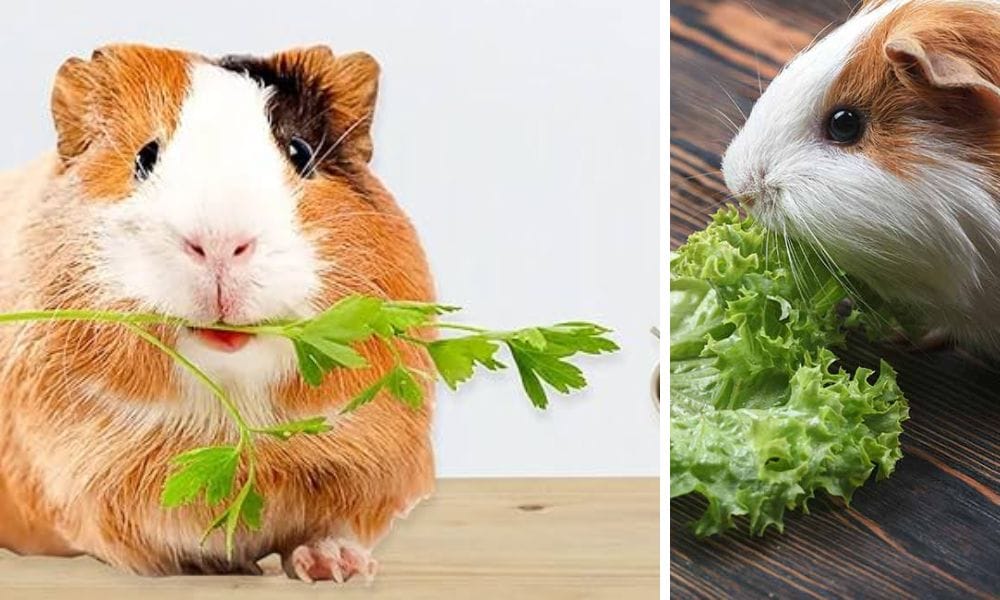
In contrast to the larger breeds, Rex guinea pigs are more commonly found in pet stores and are well-suited to life as household pets. Their manageable size makes them ideal for families and individuals alike. Despite not being the largest, their unique coat and charming personality make them just as noteworthy. When considering a Rex, remember that all guinea pigs, regardless of size, share similar dietary needs. A balanced guinea pigs diet, rich in hay, fresh vegetables, and vitamin C, is essential for maintaining their health and vitality.
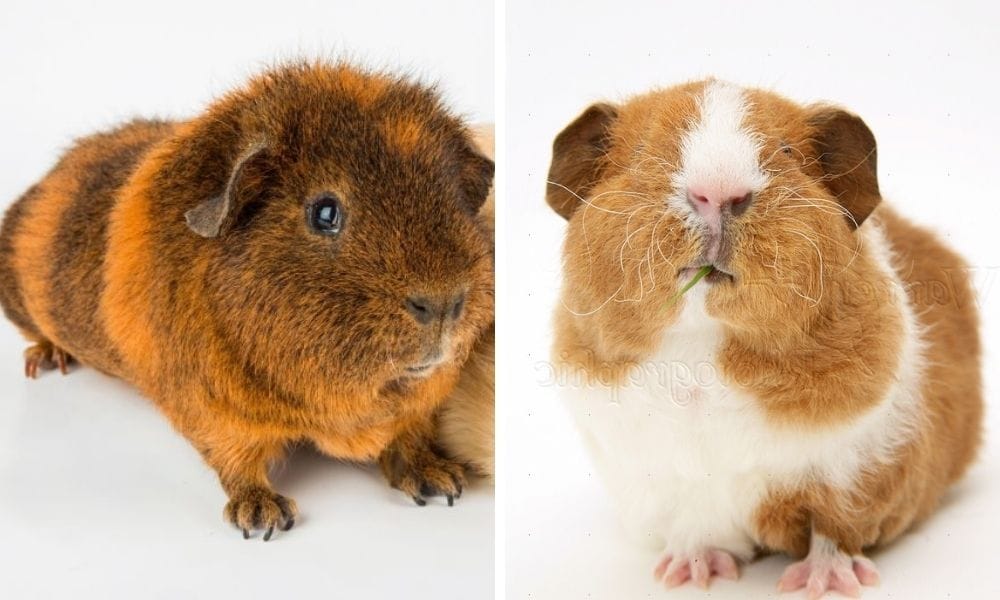
Health and Wellness
Rex guinea pigs, like all small animals, are prone to certain health problems. A proper diet, regular grooming, and a clean living environment can go a long way in preventing issues such as respiratory infections and dental problems. Always provide clean drinking water and monitor your pet for any signs of illness.
When considering rex guinea pigs hypoallergenic, it's important to note that while they are not technically hypoallergenic, many individuals report that this breed tends to trigger fewer allergy symptoms compared to other guinea pig breeds.
The Social Life of Rex Guinea Pigs
Rex guinea pigs are social creatures and often do well with other guinea pigs. Introducing rex piggies to other breeds should be done carefully to ensure compatibility. Each guinea pig has its own personality, and some may prefer the company of their own breed, while others may get along with other breeds just fine. Long haired guinea pigs, for example, require more grooming than short-haired varieties, which can affect their social interactions and the commitment needed for their care.
Rex Guinea Pigs and Other Pets
While rex guinea pig can make great pet, it's important to consider their interactions with other animals in the home. They are prey animals and may not do well with larger pets that could pose a threat. Always supervise interactions between your rex guinea pig and other pets to ensure their safety.
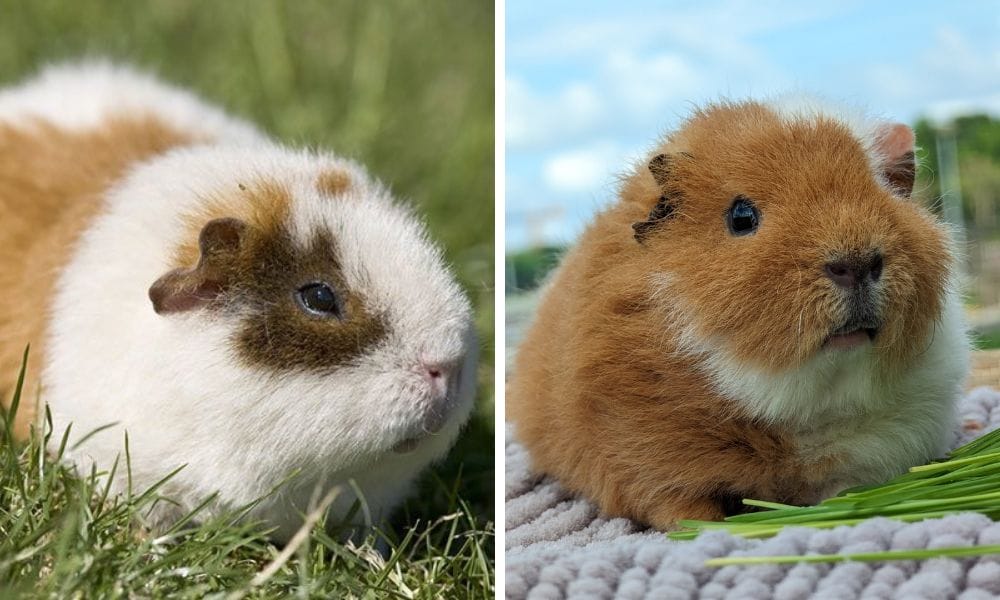
Breeding Rex Guinea Pigs
Breeding rex guinea pigs should be left to experienced breeders who understand the genetic factors at play. Rex guinea pigs can carry genes for both their curly coat and the coats of other guinea pig breeds, making breeding outcomes somewhat unpredictable.
Fun Facts About Rex Guinea Pigs
Did you know that rex guinea pigs were once thought to be a cross between guinea pigs and hedgehogs due to their hedgehog-like appearance? Or that Spanish explorers were among the first to bring guinea pigs to Europe, where they quickly became popular pets?
Choosing a Rex Guinea Pig as a Pet
If you're considering a rex guinea pig as a pet, it's important to understand their specific needs. They require a commitment to proper care, including a suitable diet, grooming, and habitat. However, their affectionate nature and playful demeanor make them excellent pet choices for the right owner.
Summary
Rex guinea pigs are a delightful and distinctive breed with a curly coat and a friendly personality. They require a diet rich in fiber and vitamin C, regular grooming with a soft-bristled brush, and a spacious enclosure to thrive. Social by nature, they enjoy the company of other guinea pigs and can make excellent pets for those willing to meet their specific care needs. By understanding the unique characteristics and requirements of rex guinea pigs, you can ensure a happy and healthy life for your curly-coated companion.
FAQ Section
Q: How often should I groom my rex guinea pig? A: Rex guinea pigs should be groomed at least once a week to maintain their coat and check for any health issues. During shedding seasons, more frequent grooming may be necessary.
Q: Can rex guinea pigs live with other breeds of guinea pigs? A: Yes, rex guinea pigs can live with other guinea pig breeds, but introductions should be done carefully to ensure compatibility. It's important to monitor their interactions and provide each guinea pig with enough space.
Q: Do rex guinea pigs require a special diet? A: Rex guinea pigs require a diet similar to other guinea pig breeds, which should include a continuous supply of fresh hay, fresh vegetables for vitamin C, and a small amount of quality guinea pig pellets. Avoid feeding them foods that are high in sugar or fat.
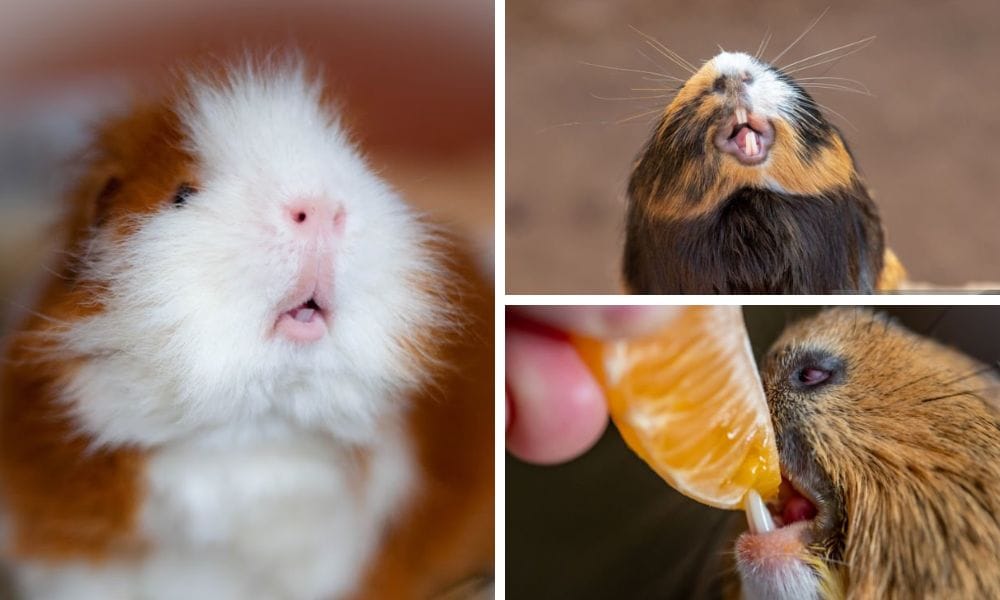
Q: Do Rex guinea pigs have health issues? Rex guinea pigs are generally healthy animals, but like all breeds of guinea pigs, they can be prone to certain health issues. Here are a few common health problems: Dental Problems: Guinea pigs have continuously growing teeth. If not worn down by chewing, their teeth can become overgrown, leading to difficulty eating and weight loss. Vitamin C Deficiency (Scurvy): Guinea pigs cannot produce their own Vitamin C, so they need to get it from their diet. Lack of Vitamin C can cause scurvy, which leads to weakness, swollen joints, and bleeding gums.
Respiratory Infections: These can be caused by bacteria, viruses, or fungi, and can lead to sneezing, coughing, nasal discharge, and difficulty breathing. Skin Problems: Rex guinea pigs have a unique curly coat, which can sometimes lead to skin issues. They can develop fungal infections, mites, or other parasites that can cause itching, hair loss, and discomfort. Digestive Issues: Like all guinea pigs, Rexes are prone to gastrointestinal problems.

